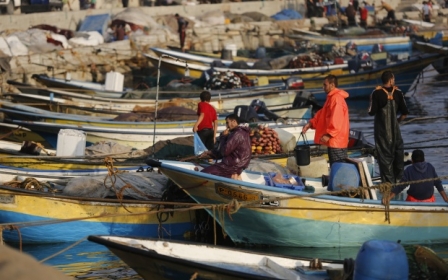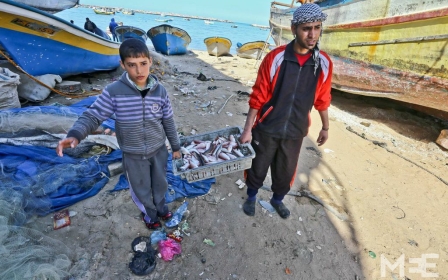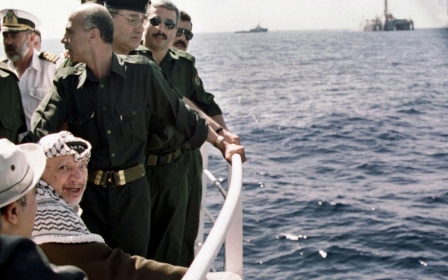Israel returns 15 confiscated Gaza fishing boats

Israel has returned 15 fishing boats it seized in recent years off the Gaza Strip, the army said, months after it fought a devastating conflict in the blockaded coastal territory.
Palestinian fishermen said it was the first time Israel had given vessels back, and demanded the return of dozens more.
"The naval branch (navy) returned to Gaza 15 fishing boats which deviated from the Strip's permitted fishing zone and were seized over the years," an Israeli army statement said late Wednesday.
The tiny vessels were dragged back to shore by a boat from the Gaza fishermen's union, an AFP photographer said.
Israel, which has imposed an eight-year blockade on Gaza, bans fishing beyond six nautical miles (11 kilometres) off the coast, and regularly fires at boats that exceed that limit.
The six-mile ban is in contravention of the 1994 Gaza-Jericho Agreement which alloted a 20-mile (32 kilometre) area to the Palestinians.
Fishermen say they are often fired upon before they reach the edge of the permitted zone.
Fishing union chief Nizar Ayyash told AFP the return of 15 boats was welcome but demanded that Israel hand back dozens more vessels still in its possession.
"It is true this is the first time Israel has returned fishing boats... but its forces fire at fishermen before they've even exceeded the imposed limit, especially off southern Gaza," he said.
"There are still 60 boats held by the Israeli navy, and we demand Israel return them," he added.
Around 4,000 fishermen work in Gaza, more than half of whom live below the poverty line.
Israel's sea blockade has also meant that Palestinians are obstructed from accessing an offshore gas field that is thought to have enough natural gas to supply Palestinians for at least 15 years.
The field, called Gaza Marine, was discovered in 1999 and has never produced gas.
A recent Middle East Eye investigation found that Palestinians could claim six times the amount of maritime area currently in their possession and it is possible that territory, in the gas-rich Levantine Basin, would also contain gas fields.
Middle East Eye propose une couverture et une analyse indépendantes et incomparables du Moyen-Orient, de l’Afrique du Nord et d’autres régions du monde. Pour en savoir plus sur la reprise de ce contenu et les frais qui s’appliquent, veuillez remplir ce formulaire [en anglais]. Pour en savoir plus sur MEE, cliquez ici [en anglais].




